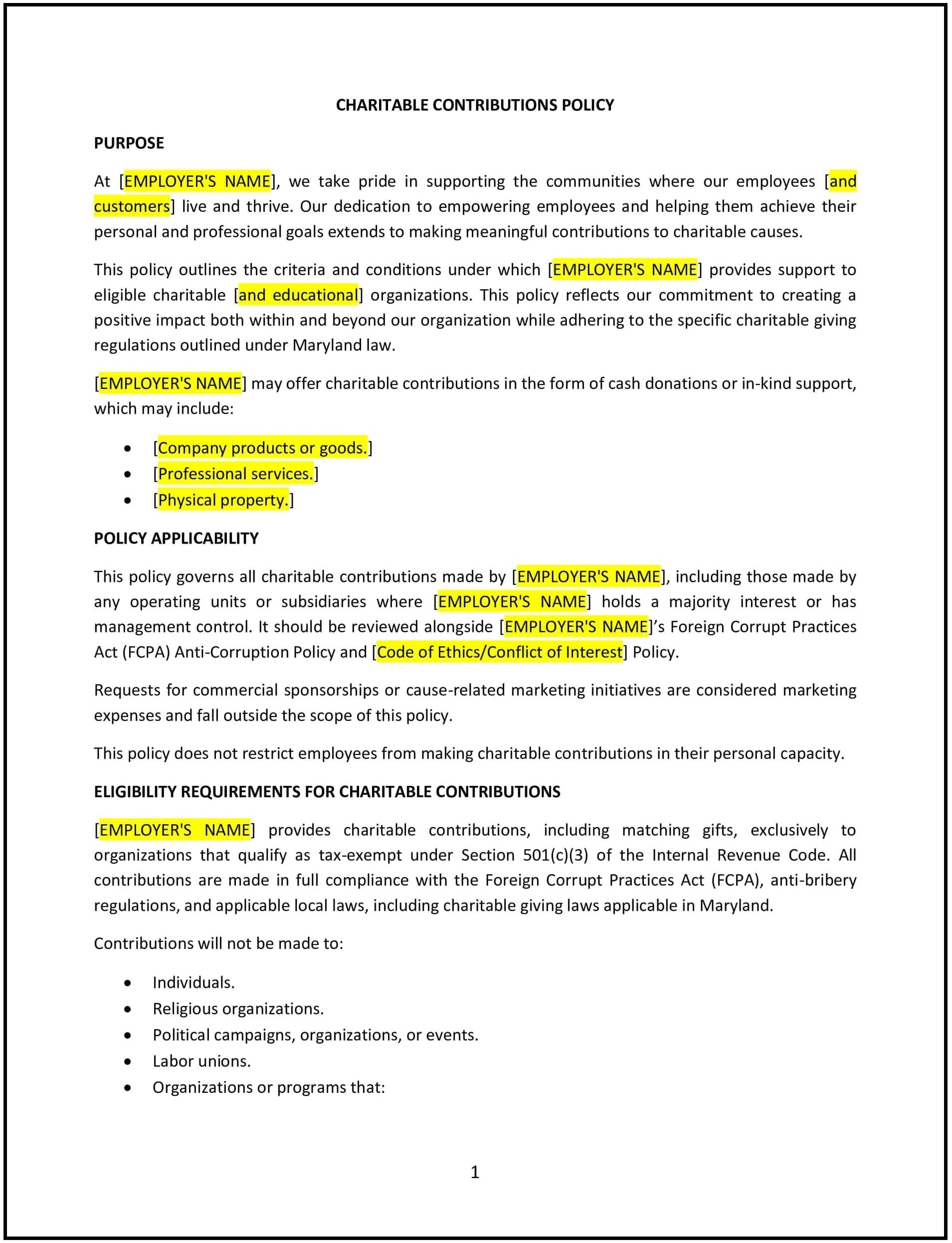Charitable contributions policy (Maryland): Free template
Got contracts to review? While you're here for policies, let Cobrief make contract review effortless—start your free review now.

Customize this template for free
Charitable contributions policy (Maryland)
This charitable contributions policy is designed to help Maryland businesses establish a structured approach to making donations and supporting charitable initiatives. It outlines guidelines for selecting causes, approving contributions, and ensuring alignment with the company’s values and community impact goals.
By adopting this policy, Maryland businesses can contribute meaningfully to their communities, promote corporate social responsibility, and strengthen relationships with stakeholders.
How to use this charitable contributions policy (Maryland)
- Define scope: Specify the types of charitable contributions covered, such as monetary donations, in-kind gifts, or sponsorships.
- Align with company values: Ensure contributions align with the business’s mission and community engagement goals.
- Establish eligibility criteria: Outline the requirements for organizations or causes to qualify for donations, such as nonprofit status or relevance to Maryland communities.
- Set approval procedures: Detail the process for reviewing and approving contributions, including the roles of employees, management, or committees.
- Include budget guidelines: Allocate an annual budget for charitable activities and specify limits for individual contributions.
- Address employee involvement: Encourage employees to suggest causes or participate in volunteer opportunities supported by the business.
- Promote transparency: Document contributions and share updates on charitable activities with employees and stakeholders.
Benefits of using this charitable contributions policy (Maryland)
Implementing this policy provides Maryland businesses with several advantages:
- Enhances community impact: Focuses efforts on meaningful contributions that benefit local communities.
- Builds reputation: Demonstrates a commitment to corporate social responsibility and ethical practices.
- Encourages employee engagement: Fosters a sense of pride and purpose among employees by supporting causes they care about.
- Provides accountability: Establishes clear guidelines for tracking and managing charitable contributions.
- Aligns with business strategy: Ensures donations support causes that reflect the company’s values and objectives.
Tips for using this charitable contributions policy (Maryland)
- Communicate priorities: Share the company’s charitable focus areas with employees and stakeholders to guide suggestions and involvement.
- Involve employees: Encourage employees to propose causes and participate in volunteering or fundraising events.
- Track contributions: Maintain records of all charitable activities to evaluate their impact and ensure proper reporting.
- Review budget regularly: Monitor the allocated budget to ensure sustainable contributions without compromising business operations.
- Stay informed: Consider Maryland-specific charitable opportunities or events that align with the company’s values.